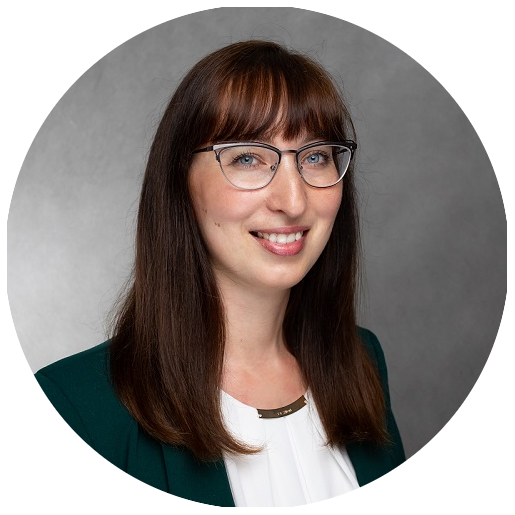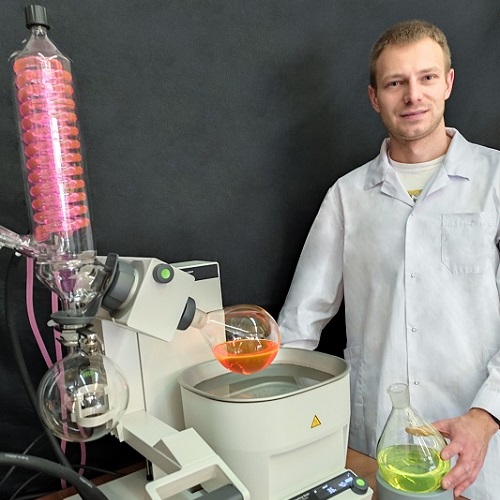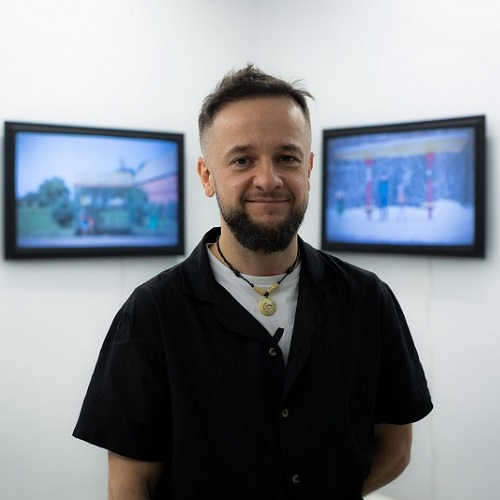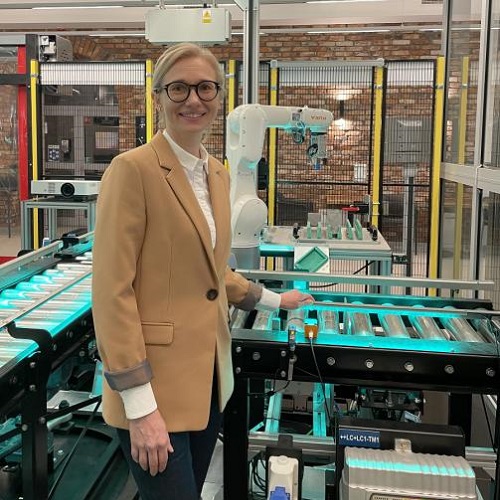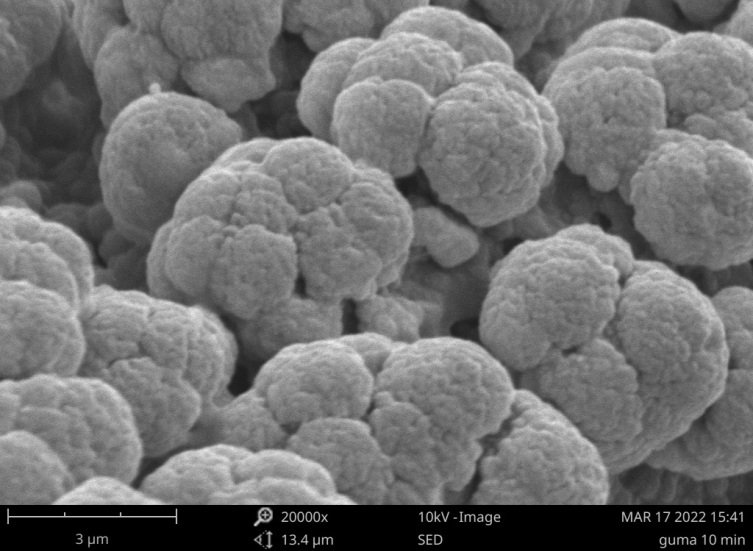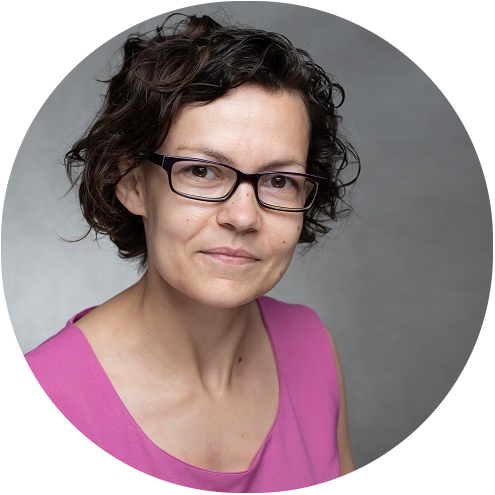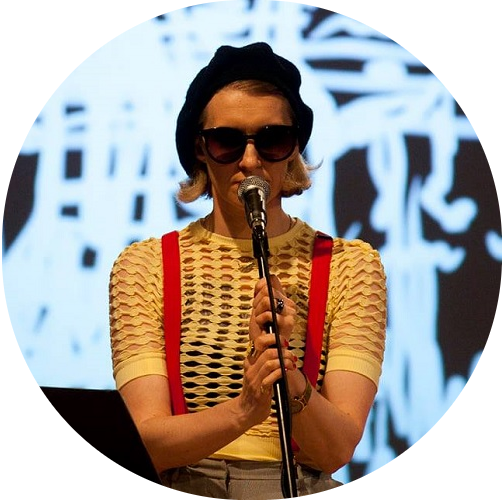DEVELOPMENT
FINANCING OF RESEARCH, INTERNSHIPS AND TRAININGS
Freedom of scientific research, artistic activity and education, equal chances for all members of the University community, respect for human dignity and searching for the truth are values of the University of Silesia in Katowice. As a result of choosing these values, we take care of the constant development of the people working and studying at our university. We offer not only financial support for projects, internships and trainings but also possibilities of conducting research or different forms of modern, attractive educational activities.
RESEARCH EXCELLENCE INITIATIVE (IDB)
RESEARCH ESCELLENCE INITATIVE COORDINATOR
PhD Eng. WERONIKA WOLANY
photo: Julia Szymala
Research Excellence Initative (IDB) is a strategic programme of the University of Silesia that supports the university in striving for scientific perfection and qualifications’ improvement.
Not only the experience researchers benefit from the programme’s offer, but also young scientists, doctoral students, students and administrative workers. As a part of IDB, it is possible to acquire funds for the realization of individual research activities for interdisciplinary, international scientific projects or competence development. We undertake various promotional activities to make the University of Silesia in Katowice visible and recognizable in the region in Europe and all over the World. IDB also includes financing for the key scientific equipment that allows for intensive research-didactic activity in the university’s key areas.
photo: Julia Szymala
PhD Eng. Weronika Wolany is scientifically connected with nanotechnology. In her everyday work, she coordinates the activities of the IDB programme. PhD Eng. Weronika Wolany is engaged in strategic initiatives and supports researchers in acquiring research funds and striving for scientific excellence. In the science-technology park, she was responsible for the popularization of knowledge
RESEARCH EXCELLENCE INITIATIVE LAUREATS ABOUT THEIR RESEARCH
One of the IDB initiatives is the „Freedom of research”. In the first edition of the call for proposal as many, as 125 scientists received co-financing for their research activity. You can read more about them in the series „Freedom of research – science for the future”.
Among others the following scientist describe their projects (from the left):
- Marek Matussek PhD – about the future of the organic electronics | photo: private archive,
- Wojciech Kukuczka PhD – about the series of photographs „Bus stops in the camera lens” | photo: Katarzyna Bubik
- Anita Pollak PhD – about research of the human-machine relation| photo: private archive
It is also worth mentioning two calls for proposals for the international research teams within the Research Excellence Initiative (IDB): the “Green Horizon” and the “Post-COVID Horizon.” Ten projects focused on ecology, climate protection, and the functioning and development of the society facing the coronavirus pandemic have received funding.
Information about the projects are available on the IDB website..
One of the leaders of the distinguished projects is Agnieszka Babczyńska, PhD, Assoc. Prof. We recommend the Professor’s article about her team’s research.
Particles of dust from the tyres derived in the laboratory observed under the Phenom XL scanning microscope
photo: Jolanta Brożek
Popular science article
The motorway from the perspective of a mealworm, an earthworm and a daphnia
„Gazeta Uniwersytecka UŚ” no. 7 (297)/2022
The whole world gladly uses motorways. They make travelling much easier, they reduce fuel consumption, they are safer. But how this kind of infrastructure affects the life quality of animals? – It is a world turned upside down, one they have to learn once again says Agnieszka Babczyńska, PhD, Assoc. Prof., a laureate of the contest “The Green Horizon,” organised as part of the programme Research Excellence Initiative. The biologist together with an international team is studying the effects of tire dust on herbivorous invertebrates.
PROJECT ZONE
SPECIALIST | PROJECT DEPARTMENT
EMILIA REKOSZ-CEBULA PhD
photo: Julia Szymala
I want to invite you to the Project zone. In only six steps, I will tell you how to realize a project as an employee of the University of Silesia in Katowice.
STEP ONE, FIND THE SOURCE OF FINANCING
The website List of the open competitionswill help you in that. You can also use an individual consultancy by calling: +48 510 891 286.
STEP TWO – PARTICIPATE IN TRAININGS AND NETWORKING
Thanks to such meetings, you will not only learn what the rules and regulations apply to a given competition but also find a partner for the project or get invited to cooperation yourself.
STEP THREE – PREPARE THE APPLICATION
The Project Department will help you to avoid formal mistakes while preparing the application for financing of your project. They will help you verify the financial aspect of the application.
STEP FOUR – PREPARE YOURSELF FOR THE RALIZATION OF THE PROJECT
Receiving the financing is only the beginning of the project realization process. The Project Department and project teams working at particular faculties will help you all the way.
STEP FIVE – GET INSPIRED
In the Project Zone you can see the exemplary projects realized by the University of Silesia in Katowice.
STEP SIX– LET’S STAY IN TOUCH
Also, in the Project Zone, you will find all that will be helpful on your way to getting the grant.
photo: Julia Szymala
Emilia Rekosz-Cebula, PhD – Specialist in the Project Department. She supports finding financing sources and project realization as the financial assistant. Emilia Rekosz-Cebula has a PhD in social sciences in sociology.
SCIENCE DEPARTMENT
SPECIALIST | SCIENCE DEPARTMENT
MAŁGORZATA KRASUSKA-KORZENIEC
photo: Julia Agnieszka Szymala
Employees of the University of Silesia can create the research centres where they conduct interdisciplinary scientific activity. It is a very appealing kind of independent research work aimed at the needs of the environment, local communities, the region or the whole of Europe that simultaneously meets the global challenges.
The combination of knowledge and experience of our excellent researchers, artists and administrative specialists, as well as the ability to cooperate with Polish and foreign higher education institutions, allows for the realization of unique research projects.
In our research centres, we conduct, among others, research on the results of climate changes in Svalbard or the water and air quality in our region. We are also interested in the critical legal and social issues, modern humanities or various aspects of creating computer games.
photo: Julia Agnieszka Szymala
Małgorzata Krasuska-Korzeniec – works in the Science Department. I am always in touch with the research centres’ leaders, and I ensure that they are provided with the best conditions that facilitate their research and help in the commercialization of their research results.
Did you know…
More than 20 research centres have already been created at the University of Silesia in Katowice, and their number is still growing. The centres are places of work for scientists and artists, students and administrative employees. Together they establish international cooperation and realise research projects in different areas: exact sciences, natural sciences, social sciences, humanities, art and law. This form of collaboration allows for realising even the most non-standard scientific and artistic projects.
Learn more about our research centres
CENTRE FOR CRITICAL TECHNOLOGY STUDIES (CCTS)
ANIA MALINOWSKA, PhD, Assoc. Prof.
photo: private archive
Together with Assoc. Prof. Michał Krzykawski, we have created the Critical Technology Studies (CCTS) at the University of Silesia. CCTS is the unit conducting international research in the scope of digital humanities. I also participate in many projects and collaborations, among others, with the experimental musician and digital architecture professor Mathew Emmett (the Fringe Landscapes project), the new media artist Przemysław Jasielski (Hypnotic AI), and Nicolas Maigret and Maria Roszkowska from DISNOVATION.ORG in Paris (the NEST project).
A part of my scientific method is artistic activity. In 2020, with Pola Dwurnik I have published a book of poems Unhappy Ending. Poems for the Broken Hearted. A year ago my first pop-feminist novel Plan B, appeared (Published by Dragon). Since 2019 I have been conducting the experimental project Textrapolations, which focused on the neo-Dadaist approach to the text and the act of writing. Its first part – the poems created from the passages of scientific and literary works will be published under the title Cutting Up Books.
photo: private archive,
Ania Malinowska, PhD, Assoc. Prof – new technologies researcher, a cultural semiologist, an author, and a poet. Among others, she specializes in the cohabitation of humans and intelligent machines in the context of emotions, feelings and affections. From 2018 to 2019, as a laureate of the Senior Research Award of the Polish-American Fulbright Commission, she conducted research at The New School in New York. The result of that work is the monograph entitled Love in Contemporary Technoculture published by the Cambridge University Press, Data Dating. Love, Technology, Desire (Intellect, Bristol) – an experimental publication on the border of cultural critique and art and new media critique written in cooperation with the Parisian curator Data Dating exhibition presented in Paris, Tel Aviv, London, Brussels and New York.






